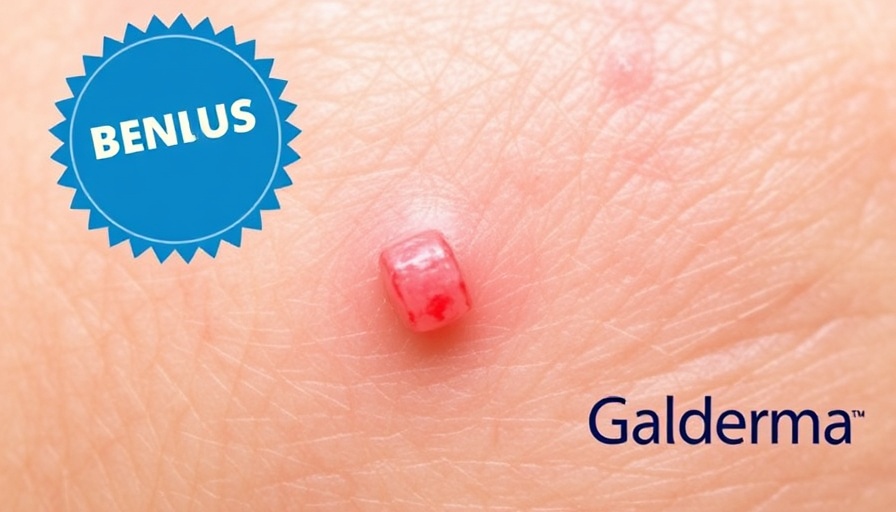
Understanding Alopecia Areata and the Promise of JAK Inhibitors
Alopecia areata is more than just a medical term; it's an emotional experience that many individuals navigate quietly. For adults aged 25-45, particularly women in corporate or client-facing roles, this autoimmune disorder can profoundly affect self-esteem and social interactions. Hair loss can evoke feelings of vulnerability, leading to myth and misinformation surrounding treatment options. Fortunately, recent advancements in the field of dermatology, especially in the development of JAK inhibitors, are changing the landscape.
What Are JAK Inhibitors?
Janus kinase (JAK) inhibitors are a class of medications that target specific pathways in the immune system that are linked to hair loss. Initially, these drugs were developed to treat other conditions such as rheumatoid arthritis and psoriasis. However, their efficacy in treating alopecia areata has garnered attention from both doctors and patients alike.
Emerging research suggests that JAK inhibitors can significantly reverse hair loss by blocking inflammatory processes that hinder hair follicle health. By understanding how these medications work, those affected by alopecia areata may feel empowered to discuss treatment options with their healthcare providers.
Real Stories: Transformation through Treatment
Consider Hannah, a 32-year-old marketing manager, who had been experiencing patchy hair loss for years. After learning about JAK inhibitors during a dermatologist visit, she felt a spark of hope. 'I had tried so many options that left me feeling frustrated,' she shares. After starting treatment, Hannah began noticing hair regrowth within a few months, changing not just her appearance but also her confidence in professional settings.
The Science Behind the Promise: Latest Research Insights
Recent studies reported by reputable dermatology bodies highlight the positive outcomes of using JAK inhibitors for treating alopecia areata. Clinical trials have shown promising results, with many participants experiencing significant hair regrowth. These findings not only pave the way for better treatment protocols but also help dispel myths surrounding alopecia and its treatments. Knowledge of current research can empower affected individuals to seek evidence-based solutions from trusted sources.
Addressing Common Misconceptions about JAK Inhibitors
One prevailing myth is that JAK inhibitors are merely a stopgap solution rather than a long-term answer. However, ongoing research indicates these medications may support lasting hair regrowth effects, leading to a potential generation of new clinical guidelines in the treatment of hair loss disorders.
Building a Supportive Community
Finding a community can be an integral part of managing alopecia areata. As more patients share their experiences with JAK inhibitors and their journey through hair loss, it creates an environment of support and understanding. Online forums and local support groups can help connect believers in the treatment’s efficacy, encouraging collective advancement in awareness and advocacy efforts. When people talk about their struggles and victories, it can resonate deeply and inspire others to seek help.
What’s Next: Future Predictions for Alopecia Areata Treatments
Looking ahead, the future of alopecia areata treatment seems promising. With advancements in JAK inhibitors and ongoing research, we may soon see targeted therapies that fine-tune their effects on individual patients. This approach is reminiscent of the broader trend in medicine toward personalized treatment plans, which helps ensure that patients receive therapies best suited for their specific conditions.
JAK inhibitors not only offer hope for patients struggling with alopecia areata but remind us of the importance of supporting one another in the face of health challenges. As you explore your treatment options, remember that knowledge, community support, and open dialogue with healthcare providers can make all the difference.
Take Action: Empower Yourself with Information
Understanding what treatments work—and why—can empower you to take charge of your hair loss journey. Don’t hesitate to discuss JAK inhibitors with your doctor; ask about the latest research and possibilities. You deserve to explore every avenue in reclaiming your health and confidence.
 Add Row
Add Row  Add
Add 






Write A Comment